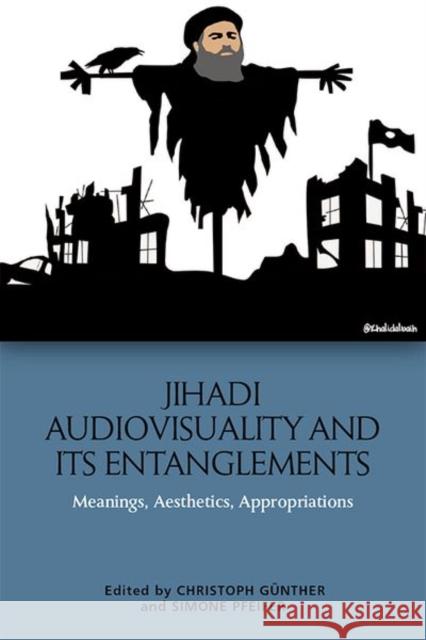Jihadi Audiovisuality and its Entanglements: Meanings, Aesthetics, Appropriations » książka
topmenu
Jihadi Audiovisuality and its Entanglements: Meanings, Aesthetics, Appropriations
ISBN-13: 9781474467513 / Angielski / Twarda / 2020 / 344 str.
Jihadi Audiovisuality and its Entanglements: Meanings, Aesthetics, Appropriations
ISBN-13: 9781474467513 / Angielski / Twarda / 2020 / 344 str.
cena 514,26
(netto: 489,77 VAT: 5%)
Najniższa cena z 30 dni: 428,18
(netto: 489,77 VAT: 5%)
Najniższa cena z 30 dni: 428,18
Termin realizacji zamówienia:
ok. 30 dni roboczych.
ok. 30 dni roboczych.
Darmowa dostawa!
Kategorie:
Kategorie BISAC:
Wydawca:
Edinburgh University Press
Język:
Angielski
ISBN-13:
9781474467513
Rok wydania:
2020
Ilość stron:
344
Waga:
0.65 kg
Wymiary:
23.39 x 15.6 x 2.06
Oprawa:
Twarda
Wolumenów:
01











